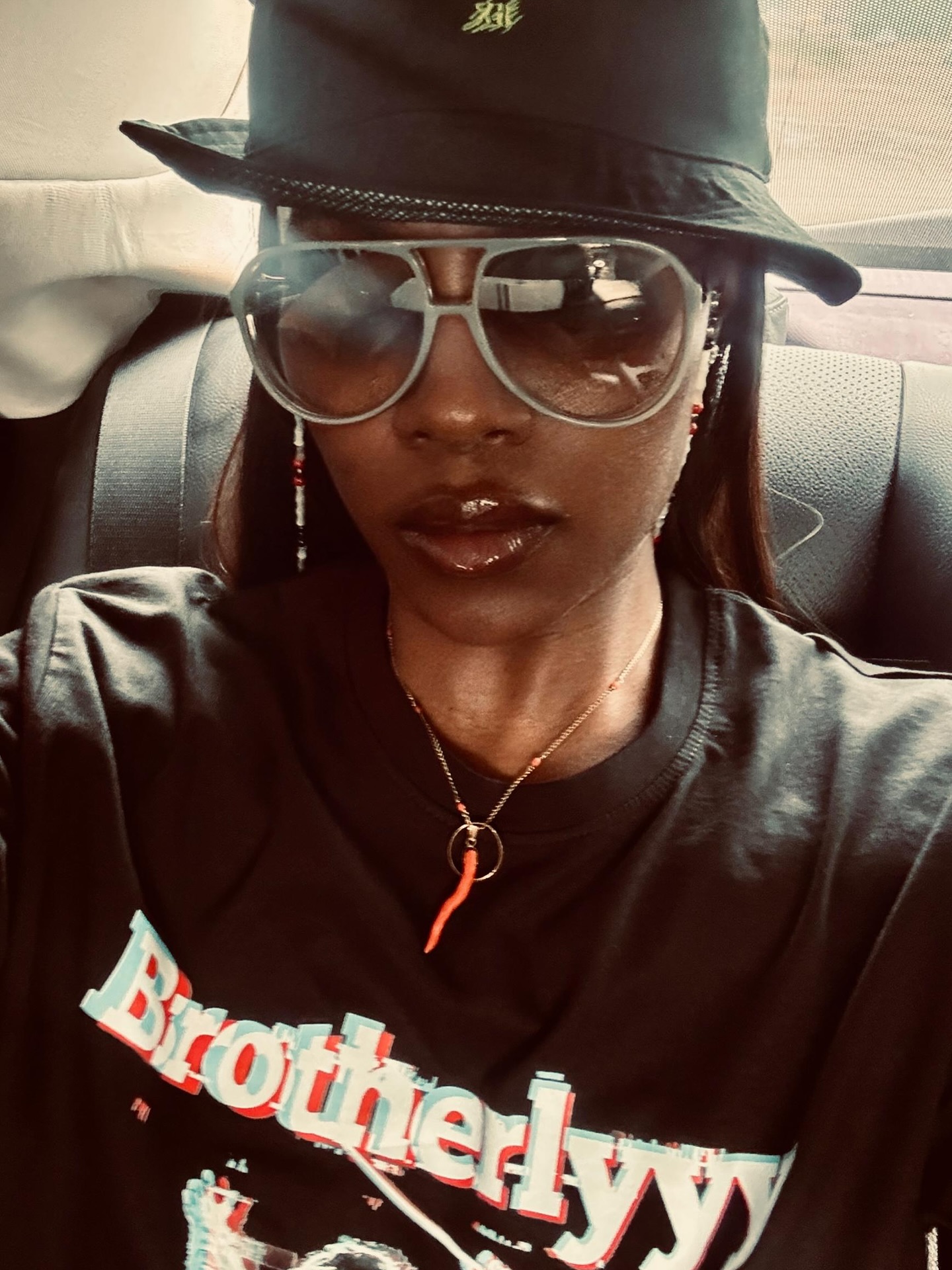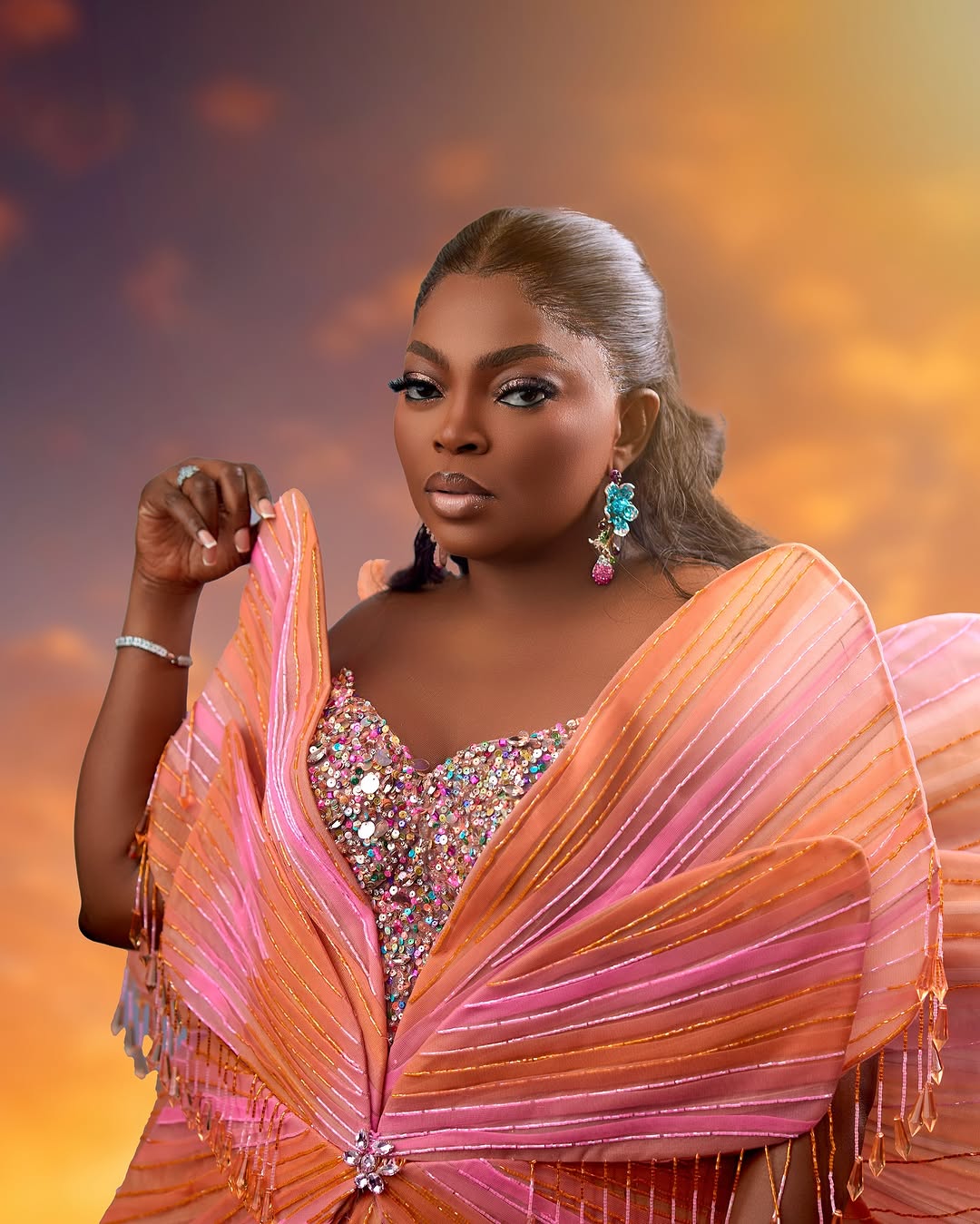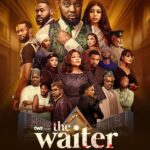For decades, Nollywood’s stories were mostly told through the lens of men, male directors, male producers, and male characters dominating the screen. But in recent years, a new cinematic wave is taking shape. This time, it’s being led by women.
From director’s chairs to writer’s rooms, women in Nollywood are redefining how stories are told, whose voices are heard, and what kinds of characters are placed at the center. The result? More nuanced female perspectives, complex characters, and culturally relevant stories that challenge long-held norms.
Welcome to the era of the female gaze in Nollywood, and it’s not just a trend. It’s a shift in power.
What Is the “Female Gaze”?
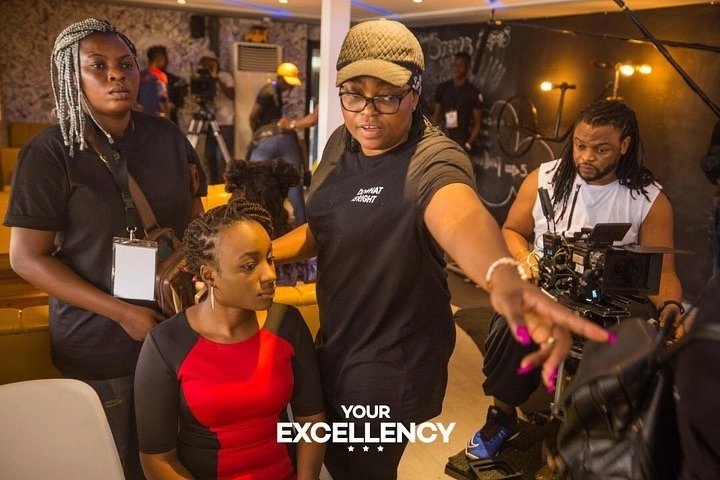
The “male gaze” has long been the default in global cinema, where women are often seen, not understood; where they exist for male desire or narrative convenience. The female gaze flips that.
It centers women’s experiences from a place of authenticity, not voyeurism. It doesn’t just put women on screen, it lets them speak, suffer, love, and live in their full, messy, complicated humanity.
In Nollywood, the female gaze means:
- Telling stories by women, for women
- Creating multi-dimensional female characters
- Tackling themes like patriarchy, motherhood, sexuality, and survival without caricature or shame
The Women Changing the Game
Let’s spotlight the trailblazers and emerging voices behind the movement:
1. Kemi Adetiba
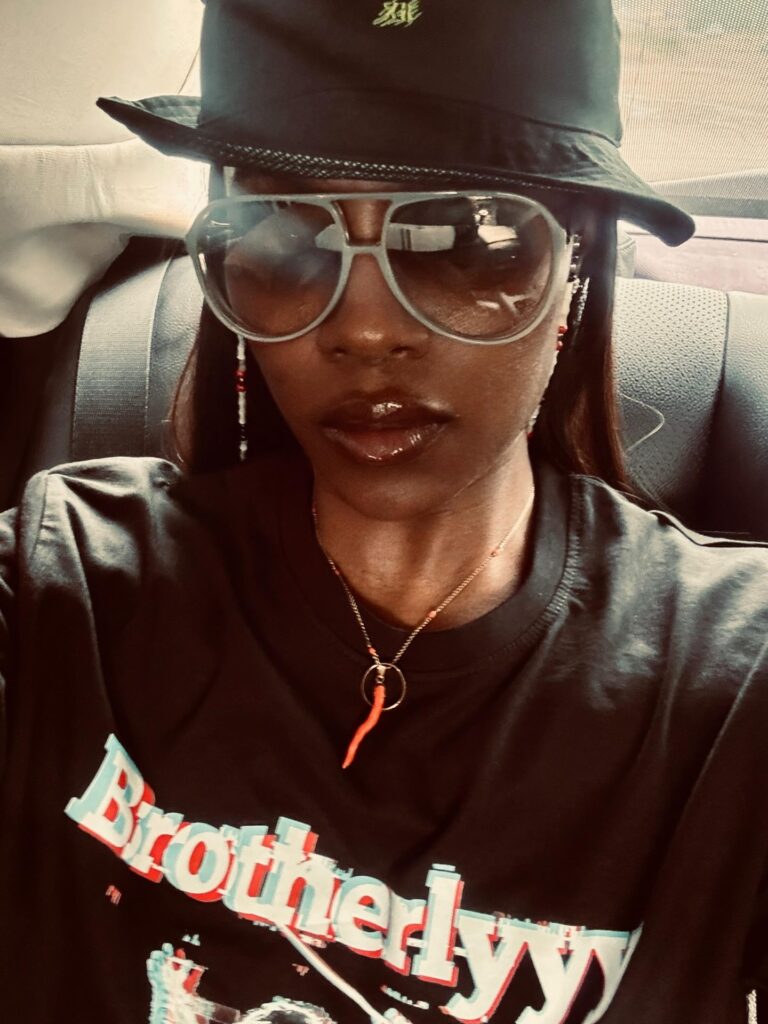
From To Kill a Monkey to The Wedding Party to King of Boys, Kemi has redefined what it means to be a female filmmaker in Nollywood. With her gripping storytelling and signature cinematic flair, she’s turned women into complex antiheroes, flawed, powerful, and unforgettable.
King of Boys didn’t just give us a female lead, it gave us a female lead who was ruthless, emotional, strategic, and unapologetically ambitious.
2. Jade Osiberu
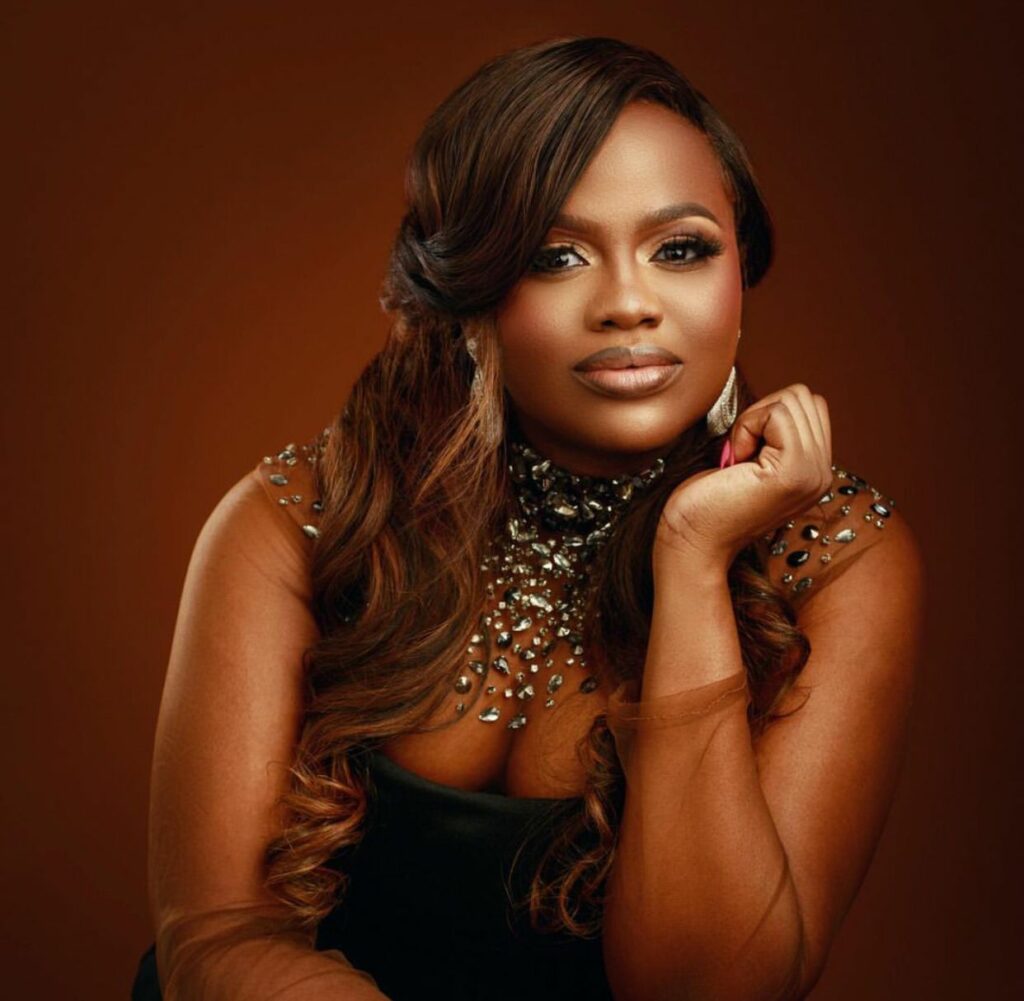
A powerhouse storyteller, Jade’s films (Sugar Rush, Gangs of Lagos) and her production company Greoh Studios are elevating the bar for Nollywood storytelling. Her work often fuses action, emotion, and strong female characters into thrilling, relatable narratives.
3. Funke Akindele
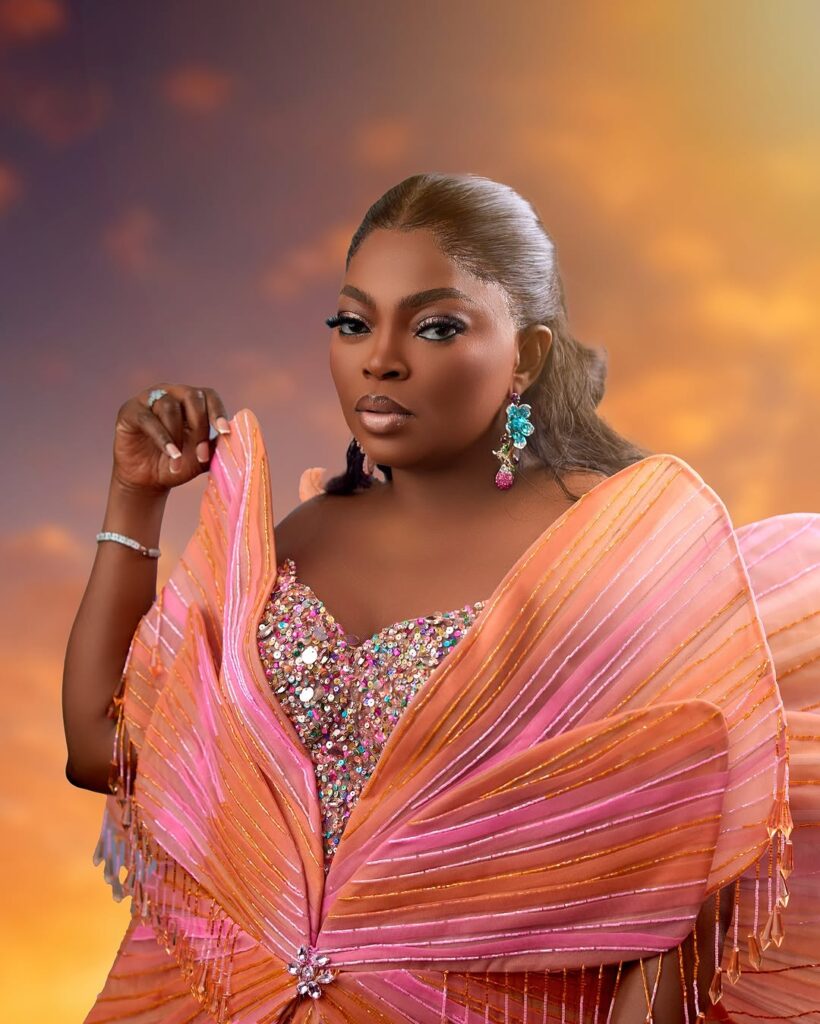
With both mass appeal and industry respect, Funke has written, produced, and starred in works that portray women in dynamic ways, balancing comedy, social commentary, and everyday realism.
Her blockbuster Battle on Buka Street (2022) became Nigeria’s highest-grossing film of all time, a landmark moment for a woman-led film in Nollywood history.
4. Tope Oshin
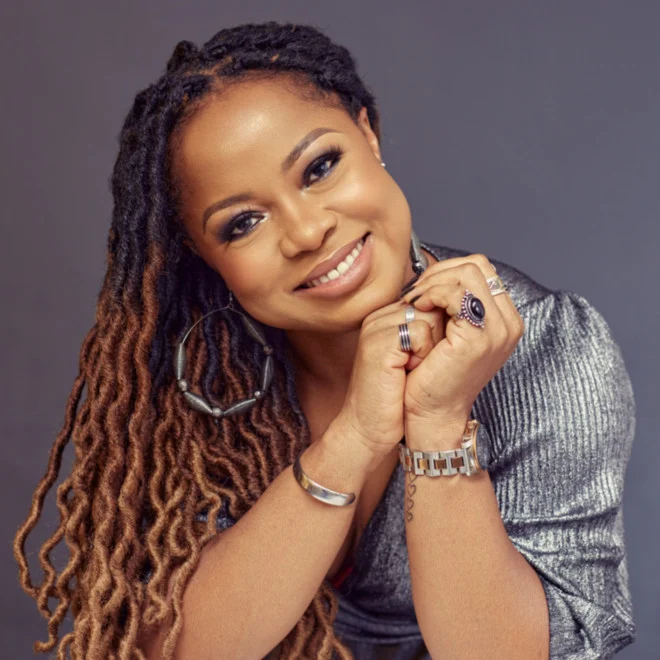
As a director and producer (New Money, Up North, Journey to Self), Tope has been an advocate for gender equity behind the camera. She also runs Sunbow Productions, dedicated to empowering women in film.
Beyond the Camera: Women in Writing, Editing, and Producing
It’s not just about directing.
- Writers like Dami Elebe (Skinny Girl in Transit, Far From Home) are creating female characters with sharp wit and real-world struggles.
- Producers like Chioma Ude, founder of the Africa International Film Festival (AFRIFF), are creating platforms to showcase women’s stories across Africa.
- Wingonia Ikpi, a writer, producer, and director, exemplifies this new generation of multifaceted female creators. Her debut feature film The Lost Days (2025), developed under the First Features Project, explores themes of illness, estrangement, and emotional reconciliation through a distinctly female lens. With a background in screenwriting and content development, and through her company Boxonia Blueprint, Ikpi is helping to reshape not only what stories Nollywood tells, but how they’re told, with emotional nuance, cultural specificity, and layered, humanized female protagonists.
- Editors, cinematographers, and set designers are increasingly female, and bringing a new kind of emotional intelligence and perspective to the visual language of film.
Thematic Shifts: What the Female Gaze Is Bringing to Nollywood
1. Intimacy Over Spectacle
While male-driven narratives often focus on action and power, the female gaze tends to highlight relationships, emotions, and internal conflict.
2. Female Desire and Agency
Films like King of Boys, Isoken, and Fifty explore what women want: sexually, professionally, spiritually, without moral panic or judgment.
3. Social Commentary Through a Feminine Lens
We’re seeing deeper dives into motherhood, aging, career pressures, and gendered violence. These themes are no longer side plots, they’re central to the story.
4. The Rise of the Female Antihero
Characters like Eniola Salami (King of Boys) challenge the old virgin-or-vixen stereotype. They’re complicated, powerful, even dangerous, like their male counterparts, but from a different emotional logic.
Streaming Platforms Are Fueling the Shift

Services like Netflix Naija, Amazon Prime Video, and Showmax are hungry for fresh, diverse African content. And they’re betting on female storytellers to deliver it.
Streaming has also democratized distribution. With lower entry barriers, more indie female filmmakers are releasing their work direct-to-audience, bypassing gatekeepers and reaching global viewers.
Is This Just a Moment or a Movement?
It’s a movement.
We’re witnessing the institutional rise of women in Nollywood. Not just one or two success stories, but a generation of female creators gaining access, visibility, and influence.
Film schools are enrolling more women. Directing workshops and funding opportunities are increasingly geared toward female creatives. Critically, audiences are responding positively, hungry for stories that feel real, intimate, and liberating.
But challenges remain:
- Funding still skews male
- Some genres (e.g. action, thriller) remain male-dominated
- Representation in technical roles is still growing
Final Thoughts: The Future Is Feminine and Fierce
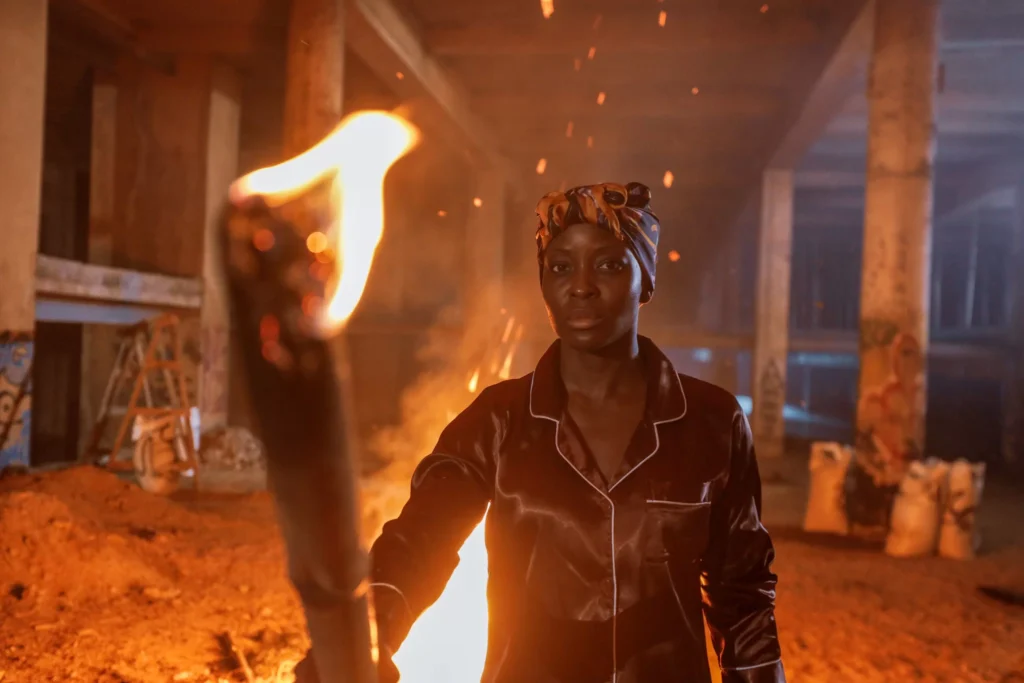
The rise of the female gaze in Nollywood isn’t about excluding men. It’s about balancing the story. It’s about saying: Women have always been here, and now, we’re telling it our way.
With each film, each character, and each scene, these women are remaking the industry, one story at a time.
And if the last five years are any indication?
Nollywood’s most powerful stories are just getting started.

